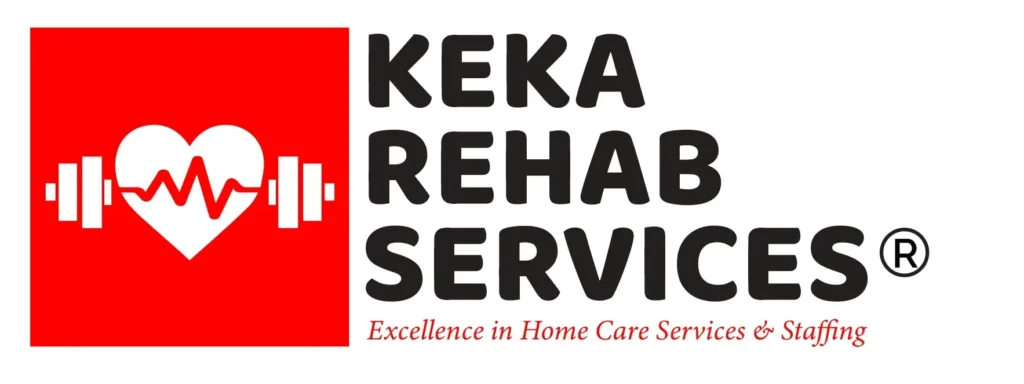Home health care nursing is a key part of today’s healthcare. It brings medical care right to your home. This care helps you recover, manage chronic illnesses, or handle injuries in your own space.
In 2020, over 5 million people in the U.S. got home health care. About 59% of them were 65 or older. This shows the growing need for care at home, mainly for our aging population.
Home health care services are broad. They include skilled nursing, physical therapy, and help with daily tasks. These services help you stay healthy and independent at home. In fact, 90% of older adults want to stay in their homes as they age.
Home health care can be cheaper and more convenient than hospital stays. It’s often just as effective too. This makes it a wise choice for many patients and their families.
Key Takeaways
- Home health care brings medical services to your home
- It helps with recovery, chronic illness management, and injury care
- Most recipients are seniors, reflecting an aging population’s needs
- Services include nursing, therapy, and daily living assistance
- Home care is often more cost-effective and convenient than hospital stays
- It supports independence and aging in place
What is Home Health Care Nursing?
Home health care nursing brings medical services right to your home. It lets people get professional care while staying in their own space. This way, they can feel more comfortable and independent.
Definition and Core Concepts
Home health care nursing means giving skilled medical care at home. Nurses do everything from giving meds to managing long-term illnesses. The aim is to help patients recover or manage their health without needing the hospital.
Scope of Practice
Home health care nursing covers a wide range of services. Nurses do skilled nursing, physical therapy, and more. They also provide patient education and social services. This approach is cost-effective and lets patients of all ages get care at home.
Key Differences from Traditional Nursing
Home health care nursing is different from hospital nursing in several ways:
- Autonomy: Home health nurses often make decisions on their own, without a team’s support.
- Environment: Nurses work in various home settings, facing unique challenges and needing to adapt.
- Patient-centered approach: Home care focuses on the patient’s specific needs and home situation, providing personalized care.
The need for home health care is rising fast. The market is expected to hit USD 393.3 billion by 2027, growing at 5.5% annually. This growth shows more people want care at home, with 90% preferring it over clinical settings.
The Evolution of Home Health Care Services
Home health nursing care has a long history, starting in ancient times. In the early 1900s, the Metropolitan Life Insurance Company started a home nursing care insurance plan. By 1916, they helped over 220,000 people with more than a million visits.
In the 1920s, more people were living with chronic diseases and getting older. This led to the creation of Social Security in 1935. It helped grow private nursing homes as a family care alternative.
The 1960s were a big change with Medicare and Medicaid adding home care. This move aimed to cut down on hospital stays and costs. But, it only covered certain types of care for those who were homebound and had acute illnesses.
Today, the home healthcare agency market is booming. It’s expected to hit $173 billion by 2026. Jobs for home health aides are also growing fast, with a 34% increase from 2019 to 2029.
New technologies have changed home health care a lot. More people, 76%, are open to using telehealth for care at home. Hospitals are also getting on board, with 87% using telehealth to improve care at home.
The future of home health nursing care is bright. Most seniors want to stay in their homes as they age. This means more people will need these services. The industry also adds about $100 billion to the U.S. economy every year.
Types of Home Health Care Services
Home health care services provide many types of support for those needing medical care at home. They meet different needs, from skilled nursing to therapy and social support.
Skilled Nursing Care
Skilled nursing services are a key part of home health care. Registered nurses give medical care, like wound treatment and managing medicines. They also teach patients about their health. Seniors using home care see a 50% drop in doctor visits each year compared to those in nursing homes.
Physical Therapy
Physical therapists help patients get stronger and move better. They create exercise plans that fit each patient’s needs. This helps improve independence and quality of life. Home health care often means faster recovery and better symptom control.
Occupational Therapy
Occupational therapists help patients with daily tasks. They teach new ways to do things and suggest home changes for safety. These services are very important for seniors staying in their homes.
Speech Therapy
Speech therapists help patients with talking and swallowing. This is very important for those recovering from strokes or with neurological conditions.
Medical Social Services
Social workers offer emotional support and help find community resources. They are key in dealing with the emotional side of illness and recovery. Home health care services may include social work for patients’ overall well-being.
Home health care is often cheaper than hospital or nursing home care. Most of these services are covered by insurance. Medicare pays for home health visits when a doctor prescribes them.
The Role of Home Health Care Nurses
Home health care nurses are key in patient care. They bring medical expertise right to your home. These skilled professionals handle many tasks to ensure you get the best care at home.
Patient Assessment and Monitoring
Home health nursing care begins with a detailed assessment. Nurses check your vital signs and review your medications. They also evaluate your overall health.
They watch your progress closely and adjust care plans as needed. This approach improves how well you take your medications and your overall health.
Care Coordination
Your home health care provider connects you with other medical professionals. They work with doctors, therapists, and specialists to ensure you get all the care you need. This teamwork can help you avoid long hospital stays and costly readmissions.
Patient Education
Education is a big part of home health nursing care. Nurses teach you and your family about your condition, medications, and how to take care of yourself. This knowledge helps you manage your health better, improving your quality of life.
Documentation and Reporting
Keeping accurate records is vital in home health care. Nurses document your progress, treatments, and any changes in your condition. This information helps track your health journey and keeps all healthcare team members informed.
Home health nurses often work alone, visiting patients at their homes. This setup allows for more flexible schedules than traditional hospital nursing. It also helps nurses build stronger relationships with patients, improving the care they deliver.
Qualifications and Requirements for Home Health Nurses
Home health nursing requires special skills and qualifications. You must have at least an Associate Degree in Nursing (ADN) and a Registered Nurse (RN) license. Some jobs might accept Licensed Practical Nurses (LPNs), but RNs are usually preferred.
Experience is key in this field. Employers often look for nurses with at least two years of medical-surgical experience. This experience helps nurses learn to handle different patient needs on their own.
Keeping up with education is also important. Many states require nurses to take ongoing courses to keep their licenses. Getting specialized certifications can also boost your career. For instance, a Pediatric Nursing Certification needs 1,800 clinical hours in the last two years. An Oncology Certification requires two years of experience and 2,000 hours of specialty practice.
Soft skills are just as important. Good communication skills are vital for working with patients and their families. Being adaptable and culturally aware is also important, as you’ll work with people from different backgrounds.
The home healthcare field is growing fast. It’s one of the fastest-growing areas in healthcare, thanks to an aging population. By 2030, all baby boomers will be 65 or older, leading to more demand for home health services. This growth means more job opportunities for home health nurses, with a 6% increase in RN jobs by 2031.
Patient Eligibility and Coverage Options
Knowing if you qualify for home health care is key. There are many ways to get help, based on your needs and situation.
Medicare Requirements
Medicare helps seniors 65 and older with home health services. You must be homebound and need skilled care sometimes. A doctor must also say you need it. Medicare-approved agencies offer quality care.
Insurance Coverage
Private insurance might cover home health care, but it varies. Talk to your insurance to know what you get. Medicaid rules change by state and needs a doctor’s say you need it.

Private Pay Options
If you don’t get Medicare or insurance, you can pay privately. You might use long-term care insurance, reverse mortgages, or pay yourself. In New York, private pay or insurance is accepted by some agencies.
Eligibility and coverage can be tricky. Talk to your doctor and a home care agency. They can help you find the right care for you.
Benefits of Home Health Care
Home health care services bring many benefits to patients, families, and the healthcare system. Let’s look at these advantages to see why home care is gaining popularity.
Patient Advantages
Home health care gives patients the care they need in a place they know. This helps them heal faster and have fewer problems. Research shows that only 13% of those getting care at home face serious issues, unlike hospitals.
This tailored care leads to better results and a better life for patients.
Family Benefits
Families feel reassured when their loved ones get care at home. More than 80% of patients and their families prefer this over hospitals. It cuts down on stress for caregivers and lets families play a bigger role in care.
Healthcare System Impact
Home health care also benefits the healthcare system as a whole. It lowers hospital readmissions and costs. Home care is about 25% cheaper than hospital or nursing home care.
This cost savings, along with better patient results, makes home health care a key part of healthcare today.
Home health care helps you recover, stay independent, and manage long-term health issues. It prevents unnecessary hospital stays and teaches you and your caregivers to manage health at home. With these benefits, it’s clear why home health care is vital in patient-focused healthcare.
The Home Care Framework
The home care framework shapes how in-home nursing care is delivered. It recognizes the unique aspects of providing care in a patient’s personal space. Let’s explore the key elements that make home health care provider services effective.
Patient Authority
In the home setting, patients have more control over their care. You make decisions about your health-related behaviors and treatment plans. This shift in power requires home health care providers to work collaboratively with you, respecting your choices and preferences.
Care Environment
Your home environment plays a big role in your care. It influences your beliefs, habits, and self-management actions. Home health care nurses adapt their approach to fit your unique living situation. This personalized care can lead to better outcomes. Nearly 5 million patients receive home healthcare in the United States each year, highlighting its growing importance.
Self-Management Support
A key goal of in-home nursing care is to empower you to manage your health. Nurses teach you skills to monitor your condition, take medications correctly, and recognize warning signs. This support is vital as about 88% of people over 65 have at least one chronic condition. Home health care can help you stay independent and reduce hospital visits.
The home care framework guides how nurses, educators, and administrators approach in-home care. It recognizes that your home is more than just a place for treatment – it’s your personal space where you have the power to influence your health outcomes.
Technology in Home Health Nursing
Home health care is changing fast with new technology. Agencies are using digital tools to better care for patients and work more efficiently. Telehealth and telemedicine are big now, making it easier to see doctors from home, even in rural areas.
Digital monitoring devices are key in home health care today. They send vital signs data in real time, keeping patients safe and spotting health problems early. From 2003 to 2013, the number of studies on technology in home care went from 556 to 1,390, showing tech’s growing role.

Remote monitoring systems use wearables to catch health issues early. This cuts down on doctor visits, helping those with ongoing health problems. Simple tech can give valuable insights into how people live and behave, beating self-reports.
Smart home tech is changing care for the elderly. It includes sensors and detectors to check on safety and daily habits in retirement homes. It also adds features like voice assistants to help seniors stay safe and independent.
Yet, there are challenges with technology. Tests show older adults have different needs than others when it comes to tech. It’s important to train healthcare workers well to avoid mistakes. Despite these issues, tech keeps making home health nursing better for patients and more efficient for care teams.
Working with the Healthcare Team
Home health care providers work with many professionals to care for patients at home. This teamwork makes sure patients get the best care possible in their own space.
Physician Collaboration
Skilled nursing services mean talking often with doctors to change care plans. Nurses tell doctors how patients are doing and ask for advice. This teamwork is key for handling tough health issues and keeping care consistent.
Interdisciplinary Communication
Good teamwork in home health care means everyone talks clearly. Nurses work with physical, occupational therapists, and social workers to help patients fully. This is very important for older adults who need a lot of care.
Care Planning
Creating and updating care plans is a big job for home health care providers. These plans cover what patients need now and what they might need later. They think about things like medicine, food, and making homes safe. The whole team, including patients and family, helps make these plans.
Strong teamwork and talking well help home health care providers do their job better. This teamwork is vital as more people need care at home. This is because more people are getting older and more can manage chronic diseases at home.
Conclusion
Home health care nursing is key in today’s healthcare. It brings medical care right to patients’ homes. This way, patients get treatment in a place they know well. The Centers for Medicare and Medicaid Services (CMS) says there are 8,090 home health care agencies in the U.S. They help over 2.4 million elderly and disabled people every year.
There are many benefits to home health care. Patients feel more comfortable and independent. They get professional care in their own space. Home health nurses can make between $70,000 to $90,000 a year. They work flexible hours to meet different patient needs.
Home health care nurses need special skills. They must do things like wound care and emergency aid on their own. They work in different homes and with different families. They build personal relationships to care for patients fully.
Technology and research are becoming more important in home health care. Studies show that things like reading skills and money matter for managing medicine at home. As we move forward, we’ll see better patient care, fewer hospital stays, and more use of technology.
FAQ
What is home health care nursing?
Home health care nursing is a special nursing field. It provides skilled medical care to patients at home. Services include wound care, managing medications, teaching patients, and monitoring health. All these are tailored to meet each patient’s needs at home.
Who is eligible for home health care services?
To get home health care, several things must be true. For Medicare, patients need a doctor’s care, be mostly at home, and need skilled nursing or therapy. Private insurance has similar rules. Some choose to pay privately if they don’t qualify.
What types of services are included in home health care?
Home health care offers many services. These include skilled nursing, physical, occupational, and speech therapy, and medical social services. These help patients recover, manage chronic conditions, and stay independent at home.
How does home health care nursing differ from traditional nursing?
Home health care nursing is more independent and flexible than traditional nursing. Nurses work alone in patients’ homes, adapting to different settings. They also teach patients and their families about managing health conditions.
What are the benefits of home health care?
Home health care has many benefits. It improves patient outcomes, increases comfort and quality of life, and reduces caregiver stress. It also lowers healthcare costs and helps prevent hospital readmissions.
What qualifications are required to become a home health care nurse?
To be a home health care nurse, you need to be a licensed Registered Nurse (RN). Having extra certifications helps. Important skills include being adaptable, a good communicator, and able to work alone. Continuing education is also key in this field.
How is technology used in home health nursing?
Technology is vital in home health nursing. It includes electronic health records, telehealth, and remote monitoring. These tools improve care coordination and patient monitoring. New technologies like AI and wearable devices are also changing home health care.
How do home health care nurses work with other healthcare professionals?
Home health care nurses work closely with doctors, therapists, and social workers. They share updates and discuss patient care plans. This teamwork ensures patients get the best care possible.







